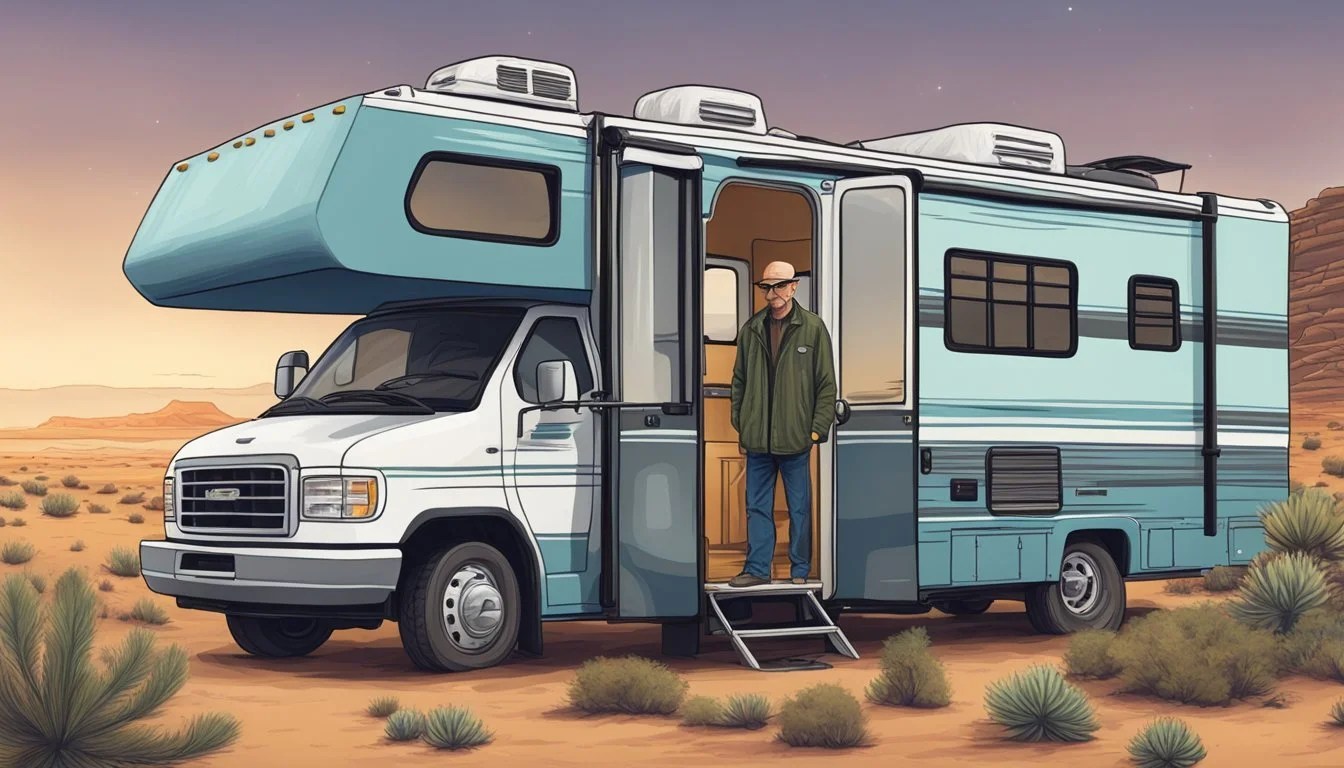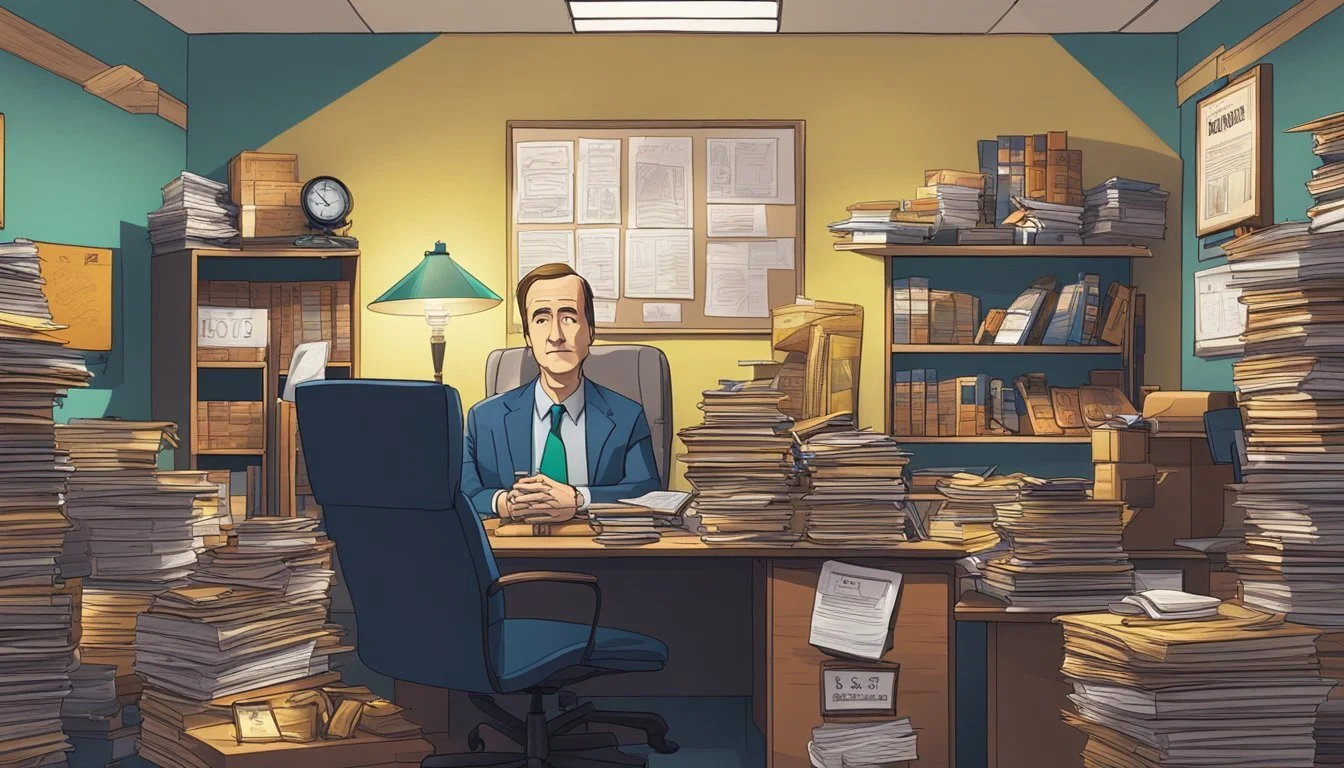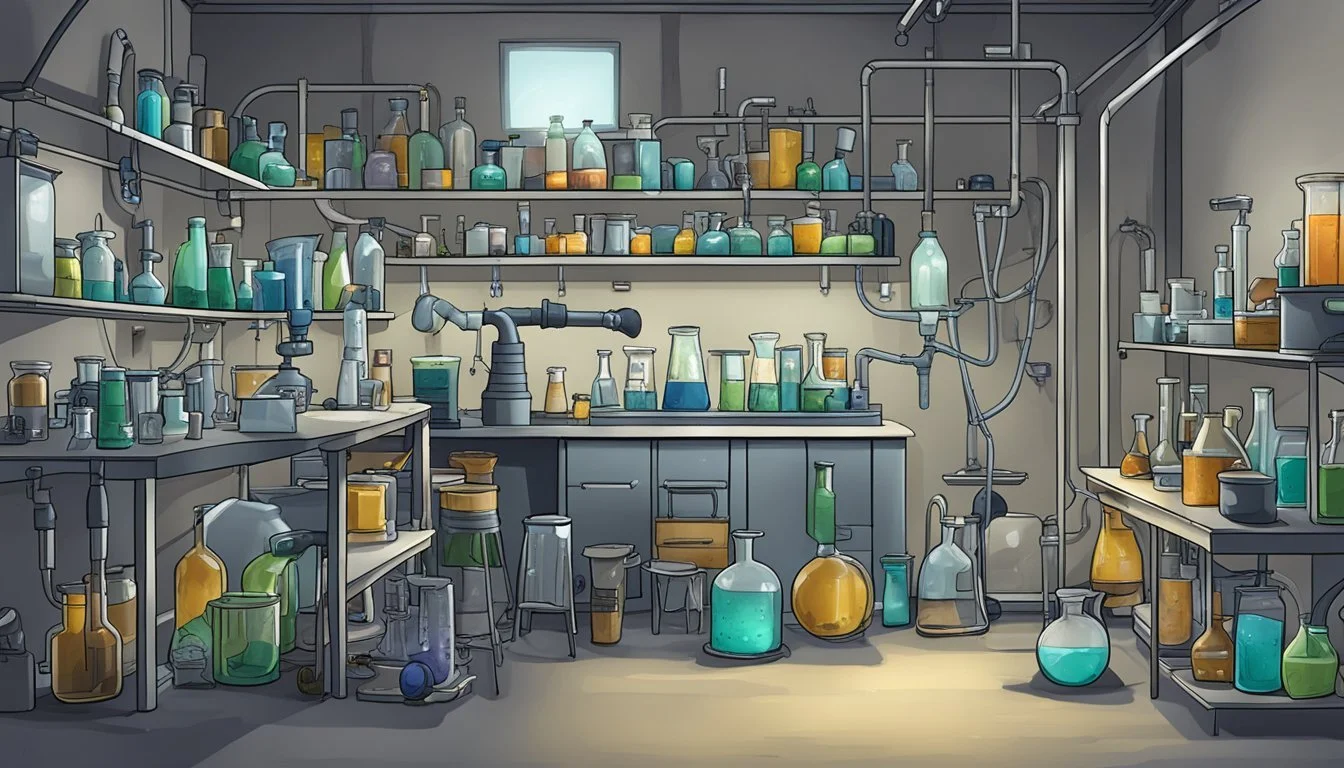6 Breaking Bad Story Arcs That Could Have Been Their Own Show
Untapped Potential in the ABQ Underworld
Breaking Bad captivated audiences with its intricate storylines and complex characters. The show's narrative arcs were so rich and multi-layered that many could have sustained entire series on their own.
Several plot threads within Breaking Bad had the depth and potential to be expanded into standalone shows. From Walter White's transformation into Heisenberg to Jesse Pinkman's struggles with addiction and morality, the series offered numerous compelling story arcs that could have been further explored in dedicated spinoffs.
1) Gus Fring's Rise
Gustavo Fring's journey from a small-time entrepreneur to a drug kingpin captivated Breaking Bad viewers. His calculated ascent through the criminal underworld offers rich material for a potential spinoff series.
The show could explore Gus's early days in Chile and his migration to Mexico. It might delve into his partnership with Max Arciniega and their initial foray into the meth business.
A key focus could be Gus's fateful meeting with the cartel, where Max was killed. This event, shown in a Breaking Bad flashback, set the stage for Gus's vendetta against the Salamanca family.
The series could chronicle Gus's strategic moves to establish his empire in Albuquerque. It might showcase his brilliant tactics in building the Los Pollos Hermanos franchise as a front for his drug operation.
Viewers could witness Gus's meticulous planning and networking as he positions himself as an indispensable partner to the cartel. The show might also explore his connections with the German conglomerate Madrigal Electromotive.
2) Mike Ehrmantraut's Past
Mike Ehrmantraut's background as a former Philadelphia police officer offers rich storytelling potential. His time on the force likely shaped his skills and moral code, setting the stage for his later criminal career.
The events surrounding his son Matty's death could form a compelling narrative. Mike's guilt over convincing Matty to take a bribe, only for him to be killed anyway, adds depth to his character.
His transition from law enforcement to the criminal underworld is another intriguing aspect. This shift would have involved difficult choices and moral compromises, testing Mike's principles.
Mike's expertise as a private investigator and fixer hint at a wealth of past experiences. These skills weren't developed overnight, suggesting a series of challenging assignments and dangerous encounters.
His military service as a U.S. Marine Corps veteran adds another layer to his backstory. This period likely instilled discipline and tactical knowledge that served him well in his later pursuits.
3) Saul Goodman's Early Cases
Saul Goodman's legal career before meeting Walter White offers a rich tapestry of potential storylines. His early cases likely involved a mix of small-time criminals and colorful characters from Albuquerque's underbelly.
Saul's knack for bending the law and finding creative solutions to his clients' problems would have made for compelling episodic television. Each case could have showcased his quick wit and unorthodox methods.
The transformation from Jimmy McGill to Saul Goodman would have been central to this potential series. Viewers could have witnessed his gradual descent into increasingly questionable legal practices.
His relationships with local law enforcement, judges, and other lawyers would have added depth to the narrative. These connections would later prove crucial in his dealings with Walt and Jesse.
Saul's early cases might have included defending petty thieves, con artists, and low-level drug dealers. These experiences would have honed his skills and built his reputation as the go-to lawyer for those in need of "criminal" legal representation.
4) Hector Salamanca's Backstory
Hector Salamanca's character in Breaking Bad left viewers intrigued about his past. The wheelchair-bound, bell-ringing former drug lord clearly had a rich history worth exploring.
A prequel series focusing on Hector's rise to power in the criminal underworld could be captivating. It would likely showcase his early days in Mexico and his eventual expansion into the southwestern United States.
Viewers could witness Hector's ruthless climb up the cartel ladder. The show might depict his rivalry with Gus Fring and the events that led to their intense hatred for each other.
The series could also delve into Hector's relationships with his family members, including his nephews Tuco, Marco, and Leonel. It would shed light on how he shaped them into the feared enforcers they became.
Hector's backstory would offer a gritty look at the drug trade in the 1970s and 1980s. It could explore the political and social climate of the era, providing context for the criminal empire he built.
5) The Salamanca Twins' Missions
The Salamanca twins, Marco and Leonel, were a formidable force in Breaking Bad. Their silent menace and unwavering determination struck fear into viewers' hearts. As enforcers for the Mexican drug cartel, they embodied ruthless power and danger.
The twins' missions could have easily sustained their own spin-off series. Their iconic image - chrome-plated skull-tipped boots and matching suits - became synonymous with impending peril. Their mechanical, austere demeanor added to their mystique.
As hitmen for Don Eladio's cartel, the cousins carried out high-stakes assignments. Their pursuit of Walter White and confrontation with DEA agent Hank Schrader were particularly tension-filled storylines. These missions showcased their relentless nature and deadly skills.
The twins' background as members of the infamous Salamanca family provided rich material for exploration. Their connections to other criminal relatives like Tuco, Lalo, and Hector could have been further developed in a dedicated series.
A show focused on the Salamanca twins could have delved deeper into cartel operations and the consequences of their actions. It would have offered a unique perspective on the drug trade from the enforcer's point of view.
6) Young Tuco's Criminal Ventures
Tuco Salamanca's volatile nature and unpredictable violence made him a memorable character in Breaking Bad. A prequel series focusing on young Tuco's early criminal activities could offer fascinating insights into his development.
The show might explore Tuco's introduction to the drug trade and his rise through the ranks of the cartel. It could depict his first encounters with violence and how he became desensitized to it over time.
Viewers could witness Tuco's initial partnerships and betrayals as he navigates the dangerous world of drug trafficking. The series might also delve into his family relationships, particularly with his uncle Hector Salamanca.
Tuco's erratic behavior and drug use could be central themes, showing how these traits emerged and intensified. The show could portray his early run-ins with law enforcement and rival gangs.
Set against the backdrop of the Mexican-American border, this series would offer a gritty look at the criminal underworld that shaped Tuco. It could provide context for his future actions in Breaking Bad and Better Call Saul.
Character Development Focus
Breaking Bad's masterful character development elevated it beyond a typical crime drama. The show's central characters underwent profound transformations that captivated audiences.
Depth of Walter White's Transformation
Walter White's evolution from mild-mannered chemistry teacher to ruthless drug kingpin stands as one of television's most compelling character arcs. His initial motivation - providing for his family after a terminal cancer diagnosis - gradually gave way to a hunger for power and recognition.
Walt's descent into criminality was marked by key moments that showcased his changing morality. The poisoning of Brock, the murder of Mike Ehrmantraut, and his manipulation of Jesse all highlighted his growing capacity for evil.
Bryan Cranston's nuanced performance brought depth to Walt's internal struggles. His ability to switch between "Walter White" and his "Heisenberg" persona demonstrated the character's complex duality.
The Complexity of Jesse Pinkman
Jesse Pinkman's journey from small-time dealer to conflicted partner in Walt's empire was equally riveting. Initially portrayed as a burnout, Jesse developed unexpected depths of empathy and moral conflict.
Key moments in Jesse's arc included his heartbreaking relationship with Jane, his guilt over Gale's death, and his attempts to break free from Walt's influence. Aaron Paul's portrayal captured Jesse's vulnerability and growing disillusionment with the drug trade.
Jesse's character growth was often tied to his relationships, particularly with children like Brock. These connections highlighted his capacity for compassion in contrast to Walt's increasing callousness.
Exploration of Secondary Characters
Breaking Bad's rich universe extended far beyond Walter White and Jesse Pinkman. The show's secondary characters often had compelling backstories and arcs that could have sustained entire series on their own.
Rise of Gustavo Fring
Gustavo Fring's journey from Chilean immigrant to drug kingpin was a fascinating tale of ambition and ruthlessness. His calculated rise through the ranks of the cartel showcased a brilliant mind for business and strategy.
Fring's double life as a respected fast-food chain owner and community leader added layers of intrigue to his character. His meticulous planning and ice-cold demeanor made him a formidable opponent for Walter White.
The character's backstory in Chile, hinted at but never fully revealed, left viewers hungry for more details about his mysterious past. A prequel series could have explored Fring's early days, his partnership with Max, and his initial foray into the drug trade.
Saul Goodman's Legal Escapades
Saul Goodman's colorful personality and questionable ethics made him a standout character in Breaking Bad. His ability to navigate the criminal underworld while maintaining a facade of legitimacy was both entertaining and intriguing.
A series focused on Saul's early career could have delved into his transformation from Jimmy McGill into the flamboyant "criminal" lawyer. His clever schemes and unorthodox methods of bending the law would provide ample material for compelling storylines.
Saul's connections to various criminals and his knack for finding creative solutions to legal problems could have been further explored. His interactions with other memorable characters from the Breaking Bad universe would add depth to the narrative.
Thematic Diversity
Breaking Bad's narrative tapestry wove together complex themes that explored the human condition. The show's ability to blend moral ambiguity with intense family drama created rich storytelling opportunities.
Morality and Consequences
Walter White's descent into criminality sparked intense ethical debates. His initial noble intentions quickly gave way to selfish ambition and ruthless tactics. The show expertly portrayed how small compromises can lead to devastating outcomes.
Each decision carried weight, with ripple effects touching numerous lives. Characters grappled with loyalty, betrayal, and the blurring lines between right and wrong.
Breaking Bad didn't shy away from showing the brutal realities of the drug trade. It forced viewers to confront uncomfortable truths about human nature and the price of power.
Family Dynamics Under Pressure
The White family's struggles formed the emotional core of the series. Walt's secret life created intense strain on his relationships with Skyler and Walter Jr.
Trust eroded as lies compounded, leading to heartbreaking confrontations. The show depicted the toll of deception on even the strongest family bonds.
Skyler's complicity and eventual break from Walt highlighted the complexity of marriage under extreme circumstances. Her character arc showed the impossible choices faced by those caught in the crossfire of criminal enterprises.
Hank and Marie's relationship also suffered collateral damage, demonstrating how the consequences of one person's actions can ripple outward to affect an entire family network.









